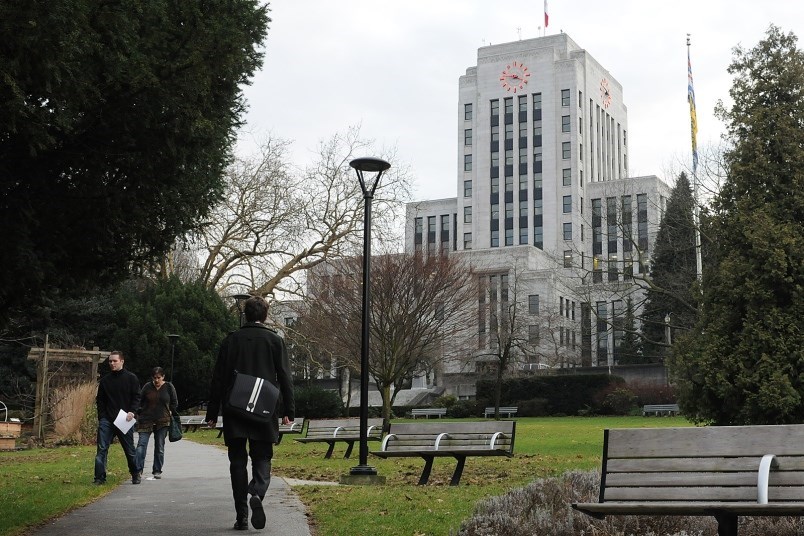The City of Â鶹´«Ã½Ó³»received 113 “whistle blower” complaints last year but whether any were substantiated or led to action were not details provided to city council, which was supposed to receive a report on outcomes of the complaints.
That finding was shared by the city’s Auditor General Mike Macdonell in an to a committee of four councillors who requested a report on the city’s whistle blower policy.
“I was informed that no such report has been prepared or presented,” said Macdonell, whose office is independent of city management.
“Because no summary report was produced, and I didn't review the supporting files, I can't tell you how many complaints were investigated or substantiated, or the outcomes of those investigations that were in fact conducted.”
Not an audit
In explaining the reason for lack of details, Macdonell made it clear that his review of the city’s whistle blower policy was not an audit, which would have triggered an examination of the effectiveness of the policy.
“It's a really important distinction,” he said. “The study wasn't actually part of my audit plan, it was instead prepared to respond to a request from this committee.”
A council-directed review of the whistle blower policy was also supposed to be conducted by city staff by the end of October 2020, but it has not been completed, said Macdonell, noting the policy was revised in 2017 after being first approved in 2008.
The definition of a whistle blower is generally understood to refer to an individual reporting information they believe reveals activities that are against policy, laws, ethics, safety standards or similar rules at the city.
In Vancouver, the city manager is responsible for overseeing the policy, with day-to-day responsibility delegated to the general manager of human resources. That is a gap Macdonell identified when comparing what’s in place in Calgary, Toronto and Ottawa.
'No role'
Unlike those three cities, which have auditor generals and integrity commissioners to conduct independent investigations, Â鶹´«Ã½Ó³»is seen as “an outlier” in having city management involved in handling of complaints, Macdonell said.
“I actually have no role other than to comply with the policy, meaning any whistle blower reports I receive must be reported to human resources,” he said, emphasizing the need for a process where whistle blowers have confidence “that legitimate concerns will be taken seriously.”
What’s important to point out, however, is Macdonell was only hired last summer as the city’s first independent auditor general. Additionally, council also hired Lisa Southern in January as the city’s first-ever integrity commissioner.
At the end of the April 22 meeting, the council committee comprised of Sarah Kirby-Yung, Michael Wiebe, Pete Fry and Colleen Hardwick unanimously agreed Macdonell and Southern be delegated responsibilities for “intake, assessments and investigations” of complaints.
Southern will only deal with complaints involving elected officials.
External sources
The committee also recommended the full council direct staff to revise the whistle blower policy so that it addresses complaints coming from sources external to the city and report back before the end of July.
Currently, there is no council-approved policy regarding complaints from external parties.
Instead, a human resources-led “whistle blower-fraud submission policy” offers an online form for citizens to fill out and report matters such as misuse of public funds, conflict of interest, abuse of position, manipulation or falsification of data and harm to people or property.
Macdonell’s presentation didn’t include a breakdown of the 113 complaints logged last year, but Andrew Naklicki, the city’s chief human resources officer, told council the city receives more complaints from the public than employees.
“We do get a lot of complaints that are duplicates, or triplicates, or coming in through 311 [city call centre], or they're coming in through other means,” Naklicki said.
“And they're not the types of complaints that, by definition, you would see coming in as whistle blowing.”
Â鶹´«Ã½Ó³» asked the city's communications department for more detail on nature of complaints and status of investigations, but was told in an email that "we’re not able to comment or disclose information about the complaints received."
In Toronto, that city's auditor general reported that between 2017 and 2021, a total of $28 million in losses was detected via reports of fraud, and another $1 million in losses prevented.
In Ottawa last year, 10 per cent of complaints were substantiated. In Calgary, 33 investigations were closed, 27 per cent of which were substantiated, resulting in 44 recommendations, according to Macdonell.



